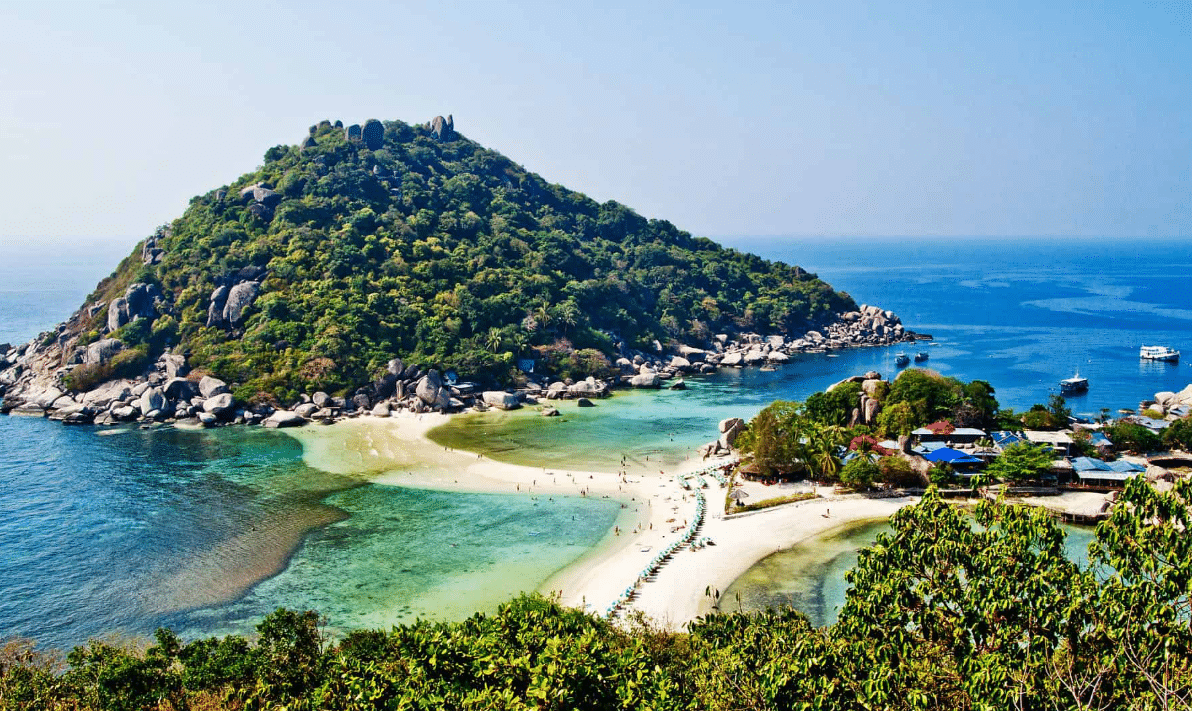Retire in Thailand: The Complete Guide
4 min read
Because of Hua Hin’s convenient location within 3 hours of Bangkok, retiring in Hua Hin has become an increasingly popular choice. It’s a quieter and slightly less expensive alternative to Pattaya.
Hua Hin
A quiet beach retreat with a summer palace which occasionally houses Thai royalty, Hua Hin offers a laidback atmosphere with pristine beaches.
It has plenty of seaside restaurants and shops but a more limited expat community than other areas.
Pattaya
Located beside the Gulf of Thailand, Pattaya is known for its resorts, high-rise condos, and 24-hour entertainment scene. The expat community is very large. Prices vary widely. Look to Naklua or Pratumnak for a more relaxed vibe.
Chiang Rai
Far northern Thailand near Laos and Myanmar, Chiang Rai feels more rural and less touristy than other popular spots. It offers a very low cost of living and slower pace of life amid beautiful mountain scenery.
Wherever you choose, spend time visiting to explore neighborhoods, tour properties, and get a feel for the place before committing long-term. Talk to expats already living there to gain insider knowledge.
Thailand is home to lots of diversity, and indeed, has something for everyone. Choose the exact place you’ll retire based on the lifestyle you want.
Is Healthcare in Thailand Good?
Thailand offers excellent healthcare, with world-class hospitals and services at very affordable prices compared to the West.
Many hospitals like Bumrungrad, Samitivej, and Bangkok Hospital are accredited by Joint Commission International (JCI) and have English-speaking doctors and staff.
However, retirees must have private health insurance and will not qualify for public healthcare programs. Shop multiple providers for the best coverage and premiums.
As a retiree, look for a policy with strong hospitalization benefits, coverage for prescriptions, exams and procedures, emergency evacuation, and international claims service.
Policies can range from around $1,000 to $4,000 per year depending on your age and desired benefits. Pre-existing conditions may affect eligibility or have limited coverage.
Thailand’s major hospitals are concentrated in Bangkok but quality care can be found elsewhere too. The standard of care is high and costs are very reasonable compared to the West.
For example, a doctor’s office visit may cost $30-50 USD, while procedures like MRIs run just a few hundred dollars. With the right insurance plan, Thailand is a great place to retire for affordable, high-quality healthcare.
Cost of Living in Thailand
The overall cost of living in Thailand is low compared to Western countries, which is a major appeal for retirees.
According to Numbeo, consumer prices in Thailand are on average 36% lower than in the United States. Rent, dining, entertainment, and services are significantly cheaper. High-end imported goods can still be costly though.
How much does it cost to retire in Thailand? Well, it widely depends on where you’ll live and how luxuriously. With a modest budget of around $2,000 USD per month, a retired couple can live very comfortably in much of Thailand.
Generally speaking, budget retirees can get by on less than $1,000 per month in rural areas. Those looking for more luxuries or accommodations in prime tourist spots may need $3,000 or more.
Housing is typically the biggest expense. A nice 1-bedroom apartment can cost between $400-$600 per month in many areas, while upscale properties in Bangkok run over $2,000 per month.
Groceries may cost 20-50% less than the West depending on your diet. Eating local Thai food is very economical. Activities like golf, movies, and massage are quite affordable.
International airfares getting to and from Thailand can be pricey though, and importing foreign goods has duties that makes some items more costly. Especially western food.
Location will impact your cost of retirement in Thailand more than anything. For example, rent in Pattaya costs about half as much compared to central Bangkok or Phuket.
If you’re living in a third-tier city like Khon Kaen or Hat Yai, it’ll get even less expensive. And if you’re living out in a Thai village out in the middle-of-nowhere, prices will become cheaper still.
Overall, Thailand offers excellent value for retires. Remember to do your homework when budgeting for the lifestyle you want.
Culture and Living in Thailand
It’s probable that life moves at a more relaxed pace in Thailand when compared to your home country.
Generally speaking, Thai people are gracious and welcoming to newcomers. Buddhism and family are cornerstones of the culture, which focuses on community and enjoying life day-to-day.
Thais place importance on having “sanuk” – finding pleasure, fun and joy in whatever you are doing. Social lives tend to revolve around family, friends, and community activities.
Culturally it is important to remain humble, calm, and avoid confrontation. Thais value harmony and cooperation.
Seniority and social rank are also respected. As a foreigner, be open-minded, avoid public criticism or anger, and show respect for Thai culture and people. In turn, you are likely to make friends quickly.



